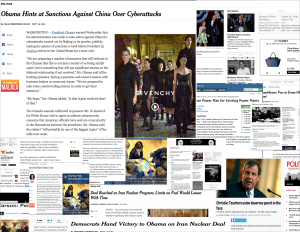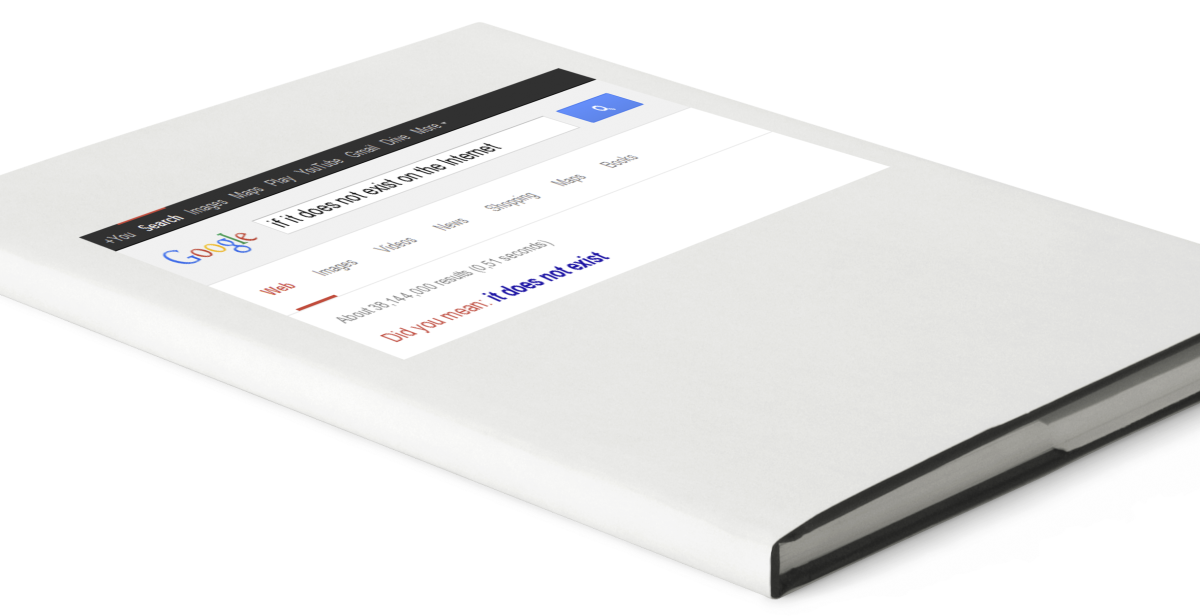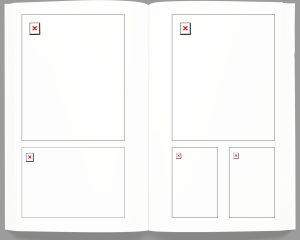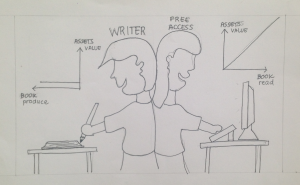
my visual response is based on the hypertext definition which is a software system that links topics on the screen to related information and graphics, which are typically accessed by a point-and-click method. (source: dictionary). Similarly with what Steven said, “first work of true hypertext fiction: a branching path of overlapping narratives and detours that the reader navigated through the novel convention of clicking on textual links.”
As an illustration and my response, I was trying to understand why web developer, author started to use hypertext, how it works, and how it affects my knowledge, point of view because hypertext can be a hunch words linked to other link with different authors, publishing on different sites. So I started with the big on the right site, linked to obama, link to his history, works, people who worked with him, iran, nuclear, which before I read clicked to this article i already knew that its true that all of them are linked together but they have different contents. Surprisingly,obama himself become the a central mode of communication like what steven said about hypertext. He said,”it turned out to be a brilliant medium for bundling a collection of linear stories or arguments written by different people” Of course hypertext become a branching path to expand networks and readers exploring ideas, as network culture, but it can be the death of the authors. Hypertext created nonlinear writing, storytelling wheres there is no beginning and end. Which is sometimes can be ambiguous .
Given these points, I agree with Steven that nonlinear writing, story telling would not make hypertext less attractive. For example, as a student hypertext really help me to explore more information from different point of view, sites (different country), data, comparison, or similarities. Probably the only thing that I experienced with hypertext was unrelated links, false statement, or blog which is more like their own opinion without any further research. Indeed, “hypertext turned out to be a brilliant medium for bundling a collection liner stories or arguments written by different people” (steven johnson )




